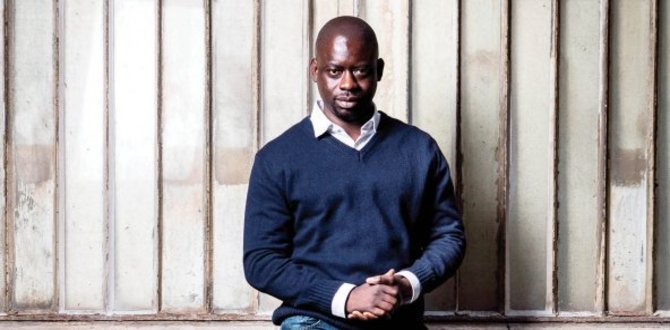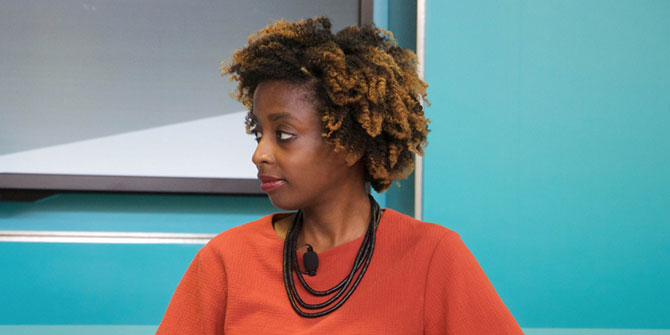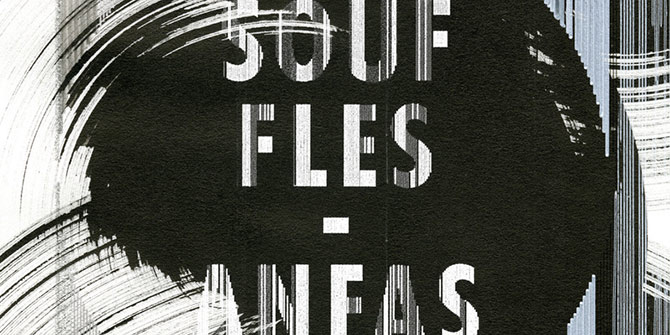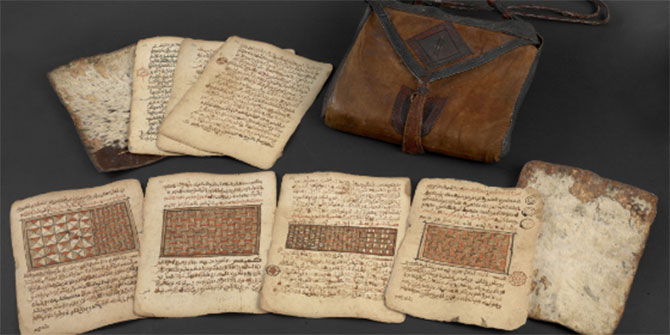Khalid Lyamlahy recalls the role played by Moroccan review Souffles in initiating a new cultural movement in 1960s Morocco.
This is part of our joint series with the Africa In Words blog: Reflections on African Literature taking place this week alongside the LSE Space for Thought Literary Festival 2016.
Why is francophone North African literature becoming increasingly popular in the UK and the US? Any attempt to answer this fundamental question should take into consideration two decisive factors: first, the development of postcolonial studies in English and American universities over the recent decades; second, the context of recent upheavals in Arab countries. In this context, reading francophone North African literature stands as a way to approach the dynamics of social, cultural and political movements and understand the multifarious challenges facing the Maghreb region. In Morocco, where politics and culture have often been subject to contentious but fruitful connections, cultural production has witnessed a surge in the years following the end of the French Protectorate and the country’s independence in 1956. The process of cultural decolonisation and self-reconstruction entailed a thorough questioning of literary forms and intellectual patterns. Writing in French was not only an attempt at “writing back” to France but also a multifaceted challenge aimed at reinventing the use of language and exploring new areas of creation and self-critique.

Of all Moroccan postcolonial cultural and literary experiences, that of Souffles, a francophone avant-garde review founded by a group of poets and artists in March 1966, was certainly the most ambitious and creative. With 22 issues published between 1966 and 1972, and 8 additional issues of its Arabic counterpart, Souffles – which means “breaths” in French – was to become an iconoclast and far-reaching forum for literary, cultural and political debates. Until its ban in 1972, Souffles offered a wide range of publications, including experimental poems, literary reviews and manifestos, cultural accounts, political texts and various interviews. A recent volume entitled Souffles-Anfas, A Critical Anthology from the Moroccan Journal of Culture and Politics[1] has made available for the first time in English an anthology of texts and excerpts from the Moroccan review. In the prologue of the first issue, Moroccan poet Abdellatif Laâbi defines Souffles as “the vehicle of a new poetic and literary generation”[2]. While acknowledging the role and the creativity of the previous generation of francophone North African writers (Kateb Yacine, Mohammed Dib, Albert Memmi…), the new team took a stand for a radical rupture with the outdated colonised-coloniser’s relationship. Indeed, Souffles was all about the initiation of a new cultural movement henceforth centred on the Maghrebi and the African subjects.
The question of language was at the core of Souffles. In his prologue, Abdellatif Laâbi predicted that the choice of French might provoke criticism. His response was to advocate that the review primarily aims “to arrive at a correspondence between written language [langue] and the poet’s inner world, his intimate, emotive language [langage]”[3]. From the perspective of Souffles, language is the private ownership of the writer as he endlessly reworks its structure and reinvents its forms and meanings. While this vision would later evolve with the shift to Arabic, one can still read in the review’s initial approach to language the meaningful advocacy of literary creativity and linguistic inventiveness. Those values paved the way for a series of experimental texts which challenged both acts of writing and reading. In 1984, when asked during Bernard Pivot’s French literary TV programme Apostrophes about the risk of losing his freedom in using French language, Moroccan poet and co-founder of Souffles Mohammed Khaïr-Eddine cunningly replied: “We can work currently in every language. The only condition is the following: to master it” [I translate].
Reading the English translation of Souffles-Anfas today is particularly revealing. While Morocco is about to celebrate the 50th anniversary of the foundation of the review, one might ask: what are the cultural and symbolic legacies of Souffles and how these can be reread and reinvestigated from a recent Maghrebi and African perspective? In the 1960s, Morocco was going through a period of political, economic and social upheaval while the African continent was still caught in the dynamics of decolonisation and struggles for independence. Today the context has changed, but the question remains: what can literature do for African people? While not offering definitive answers to this question, cultural experiences such as the one of Souffles-Anfas have the merit of shedding light on the role of intellectual elites in shaping alternative spaces of both socio-political commitment and linguistic innovation. Indeed, the very concept of self-reconstruction can hardly be effective without a promotion of cultural revival and literary creation. For “poetry is all that is left to man to reclaim his dignity, to avoid sinking into the multitude, so that his outcry forever carries the imprint and attestation of his inspiration [souffle]”[4].
Khalid Lyamlahy is doctoral researcher in French and Francophone Literature at the University of Oxford. Follow him on Twitter @khalidlym. You can also contact him on email: khalid.lyamlahy@st-annes.ox.ac.uk.
Follow the LSE Space For Thought Literary Festival 2016 on Twitter with the hashtag #LSELitFest.
[1] Olivia C. Harrison & Teresa Villa-Ignacio (ed.), Souffles-Anfas. A Critical Anthology from the Moroccan Journal of Culture and Politics, Stanford University Press, 2016
[2] Abdellatif Laâbi, “Prologue” (translated from French by Teresa Villa-Ignacio) in Olivia C. Harrison & Teresa Villa-Ignacio (ed.), ibid., p.21
[3] Abdellatif Laâbi, ibid., p.20
[4] Abdellatif Laâbi, ibid., p.21
The views expressed in this post are those of the authors and in no way reflect those of the Africa at LSE blog or the London School of Economics and Political Science.






3 Comments